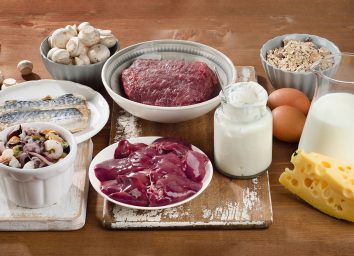5 Foods High in This Vitamin That Can Help Protect You From COVID-19
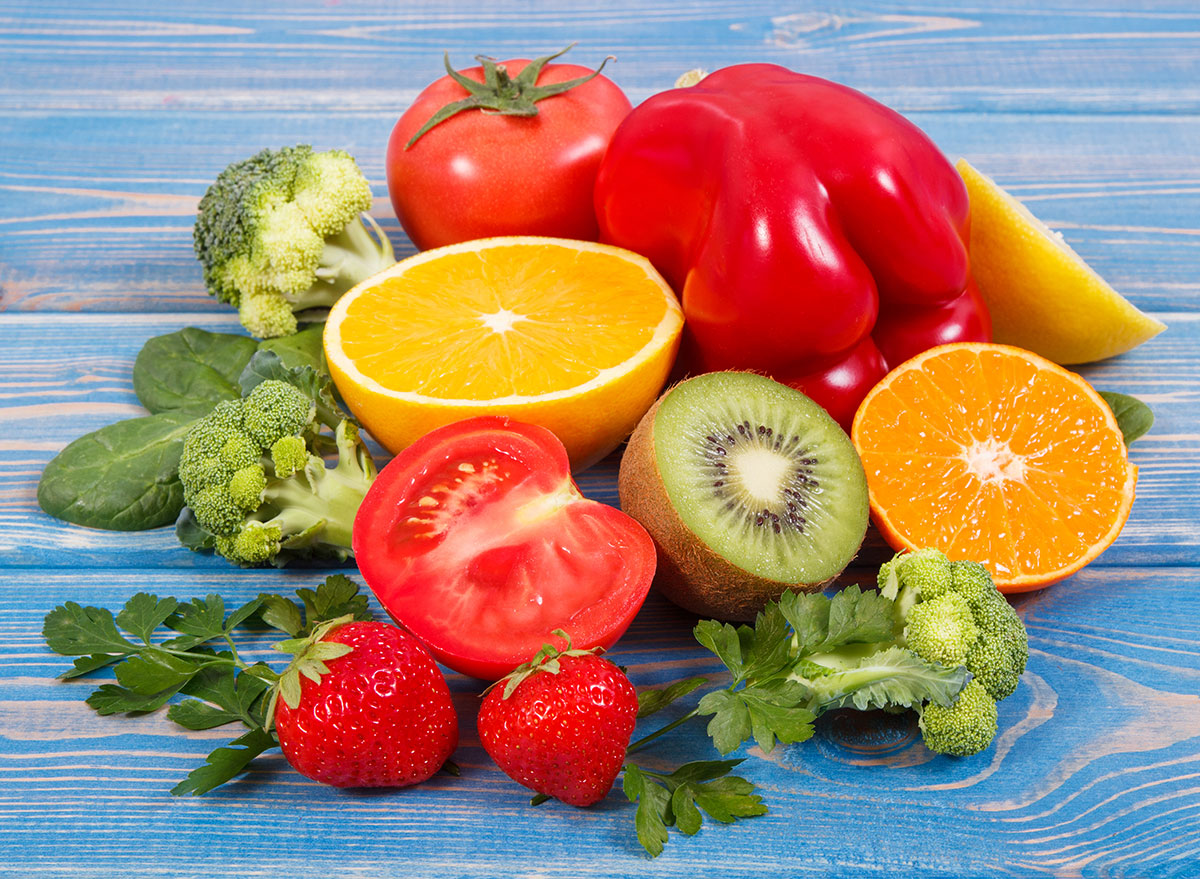
You may have heard that vitamin D is helpful in protecting the immune system and preventing the seriousness of coronavirus. But, there is another that is just as helpful. Vitamin C is great for fighting inflammation that leaves the immune system weak, and the CDC says it is a great one to get through foods.
“It’s important to get enough vitamin C because it has a lot of jobs, and we have to eat enough of it to maintain healthy levels in our bodies,” says Coral Dabarera Edelson, MS, RD. “It is also one of the most important antioxidants in the body.” Antioxidants are responsible for keeping the delicate balance of the number of free-radicals from pollution and other harmful things in the body in check.
When it’s out of balance, our immune system is weaker, she says. “Eating a whole-foods diet full of fruits and vegetables containing antioxidants like vitamin C is the best way to keep this delicate balance in check.”
There are quite a few fruits and vegetables that offer a ton of vitamin C, and none of them are oranges. Eating some of these each day ensures you’re getting the daily recommended amount. For women, it’s 75 mg a day, and for men, it’s 90 mg a day. Taking supplements in large doses can increase your risk for diarrhea, nausea, heartburn, and more, according to Harvard Health, so getting it from foods is a better alternative.
Here are five fruits and vegetables that satisfy the daily recommended amount and can keep the immune system strong and protect you from COVID-19.
Strawberries
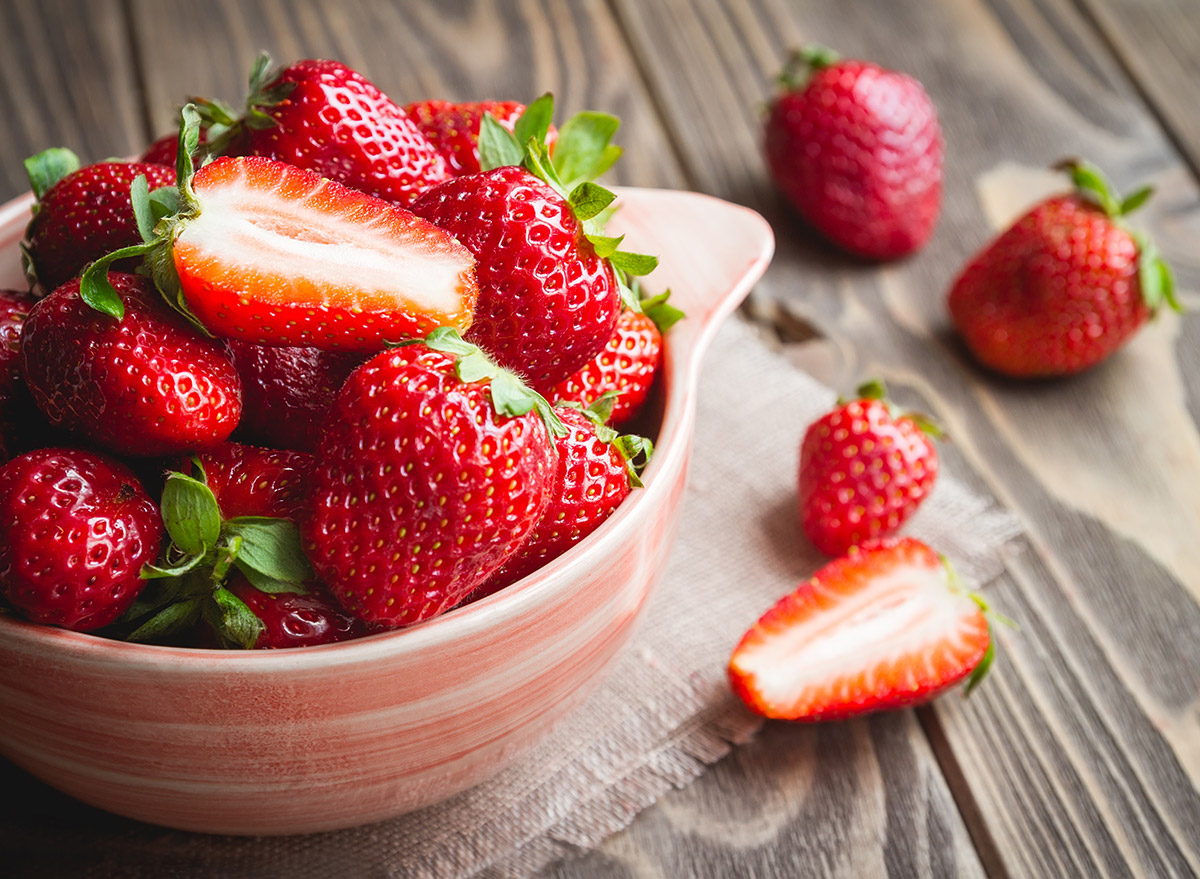
Only one cup of strawberries is needed to go over the recommended daily amount. Plus, they also have tons of other nutrients with additional benefits. “Strawberries contain manganese, which is important for bone health,” Dabarera Edelson says. Here is a delicious Light & Low-Calorie Strawberry Rhubarb Ice Recipe.
Red bell pepper
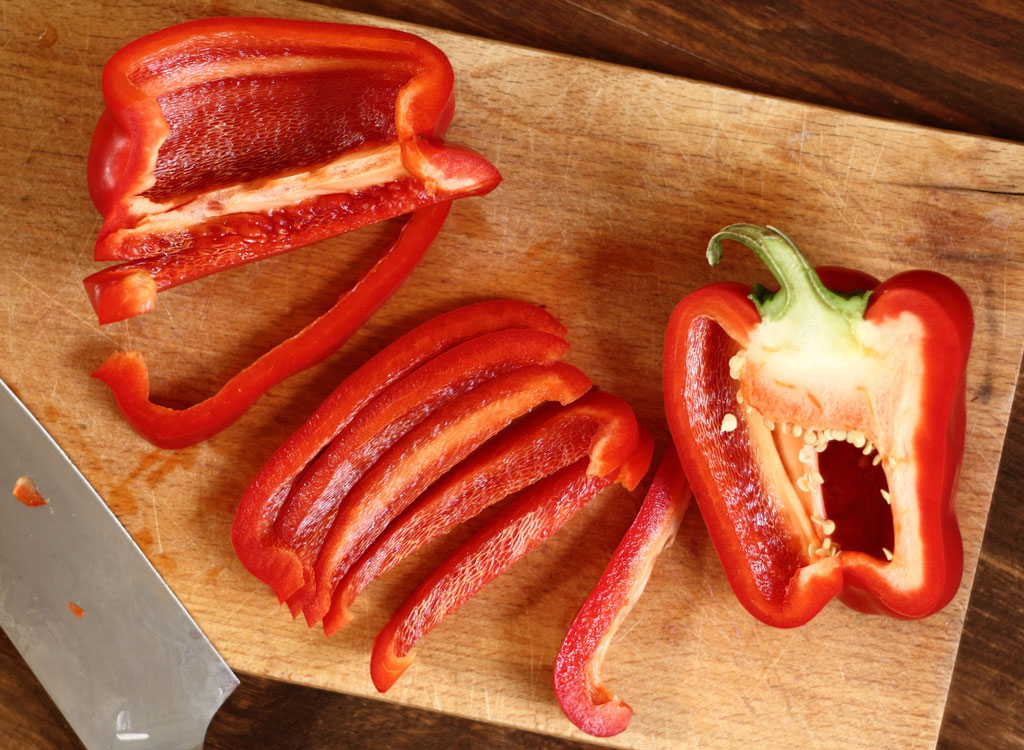
About half a cup of this raw vegetable gives you over 100 mg of vitamin C. One medium red bell pepper is equivalent to about 1 ¼ cups, so adding one into a dish is an easy way to add in nutrients. “Red Bell Pepper is high in beta-carotene, which is important for eye health,” Dabarera Edelson says.
Related: 40 Best Belly-Shrinking Foods
Cooked broccoli
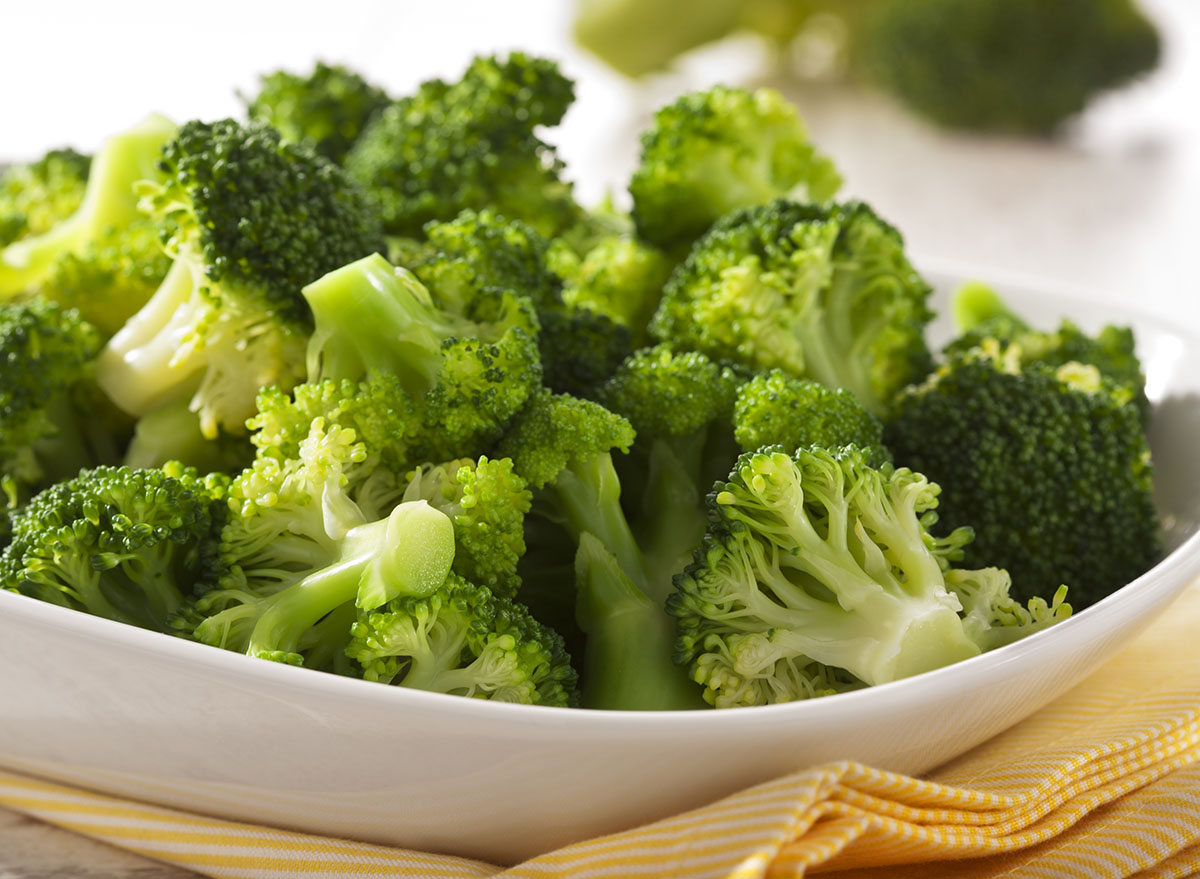
Cooked broccoli is high not only in vitamin C (it contains 57% of your daily value) but potassium and iron. Steaming or roasting it before eating is a great way to get the most benefits, according to Healthline. Here’s our restaurant-worthy recipe for A Classic Orecchiette Dish With Broccoli Rabe perfect for nights in!
Brussels sprouts
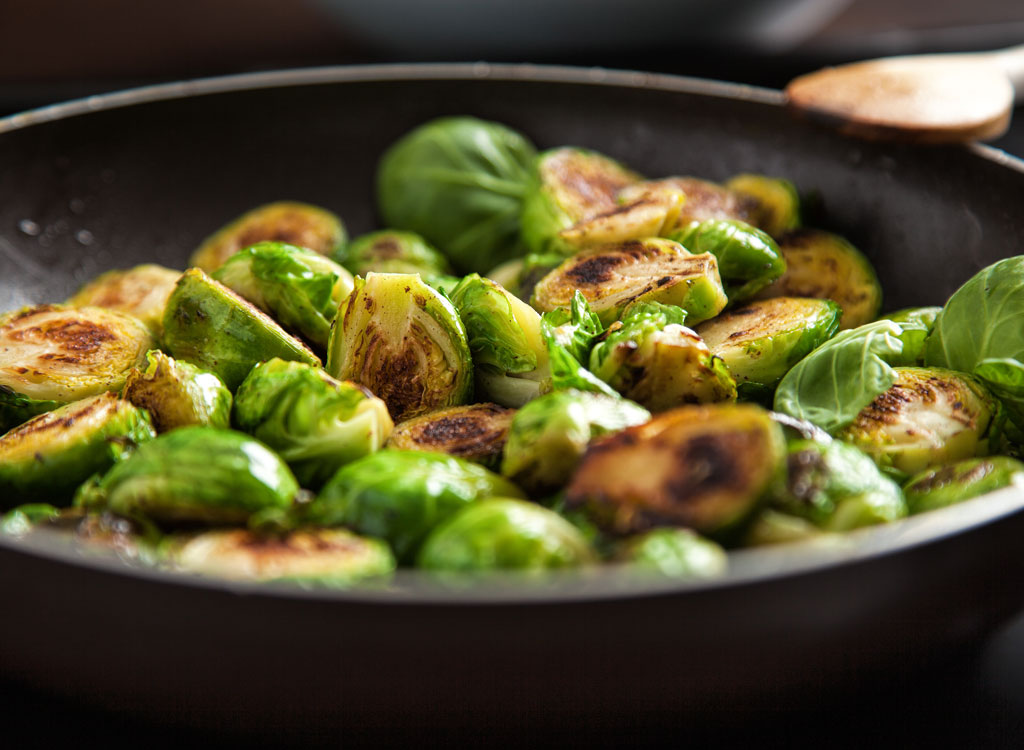
Yep, this green vegetable has 53% of your daily value of vitamin C, meaning one serving of them plus one serving of broccoli can help protect you against COVID-19. Check out the 5 Best-Ever Brussels Sprouts Recipes for some inspiration on how to add more into your diet!
Cooked cabbage
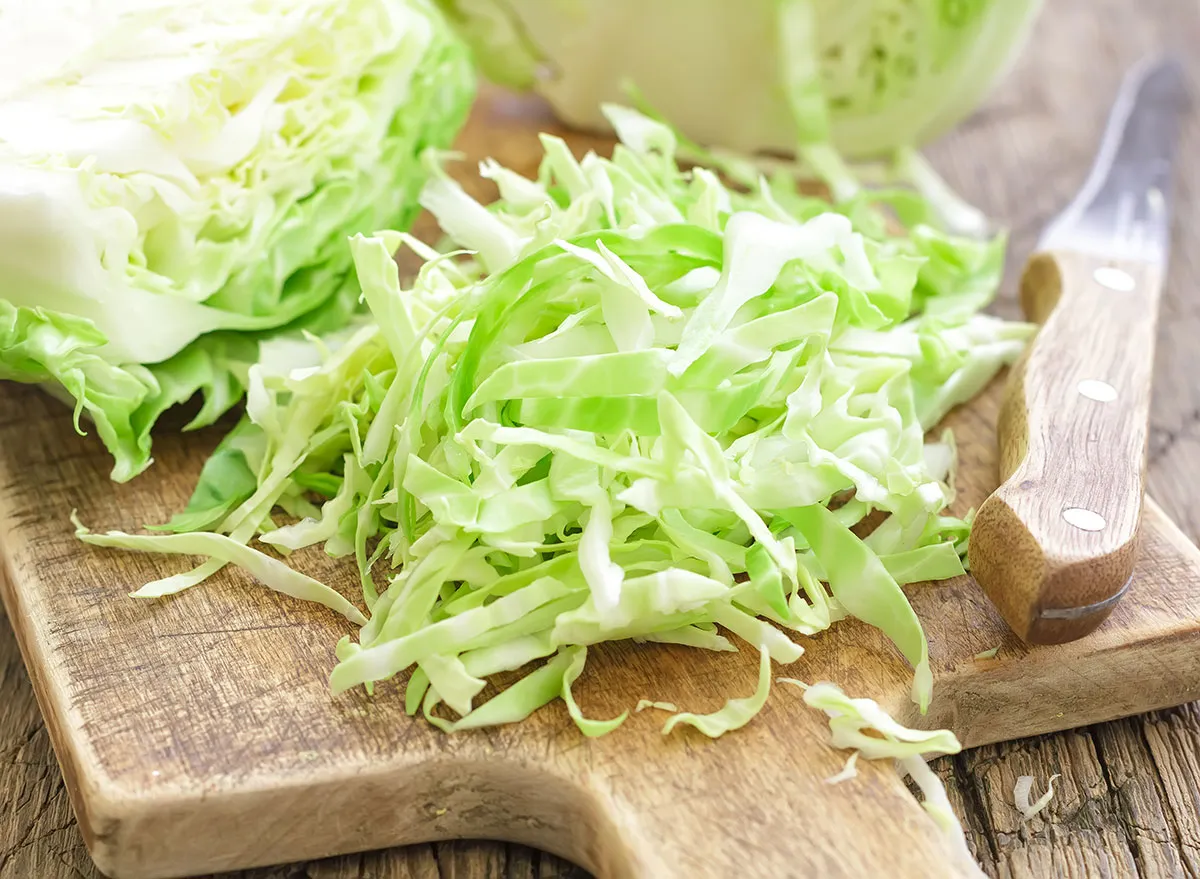
Cooked cabbage is a great way to give your immune system a boost. But eating it, and these other foods, not only give you protection against the coronavirus but also helps other areas of the body. “Brussels Sprouts, broccoli, and cabbage are cruciferous vegetables containing indole-3-carbinol which helps balance hormone levels in the body,” Dabarera Edelson says.
Read more: Here’s the Best Way to Cook Cabbage
